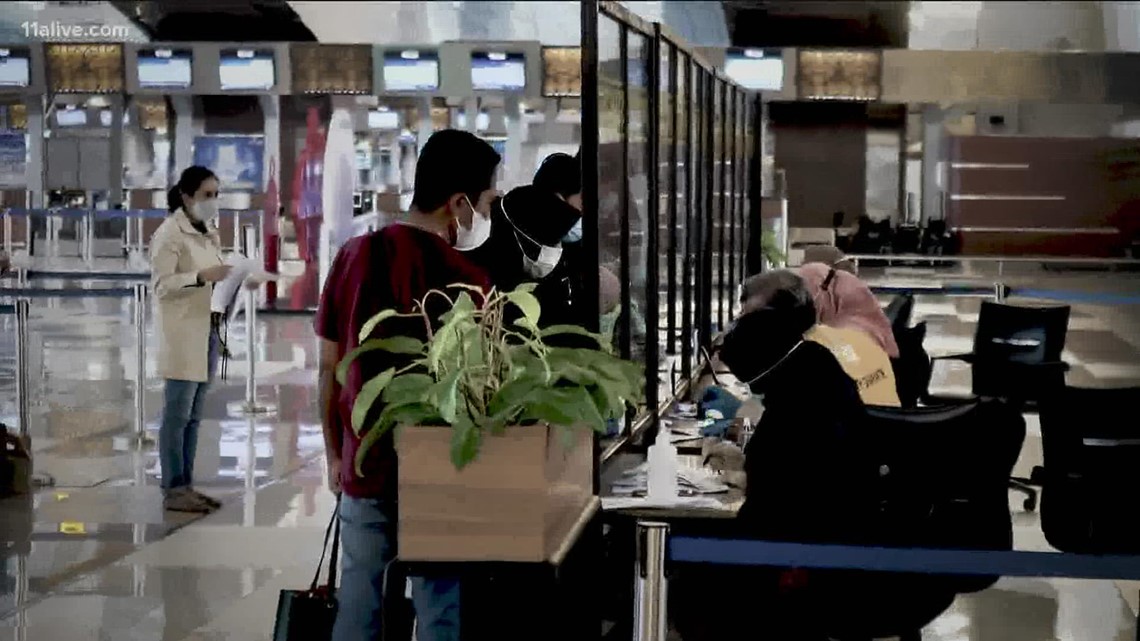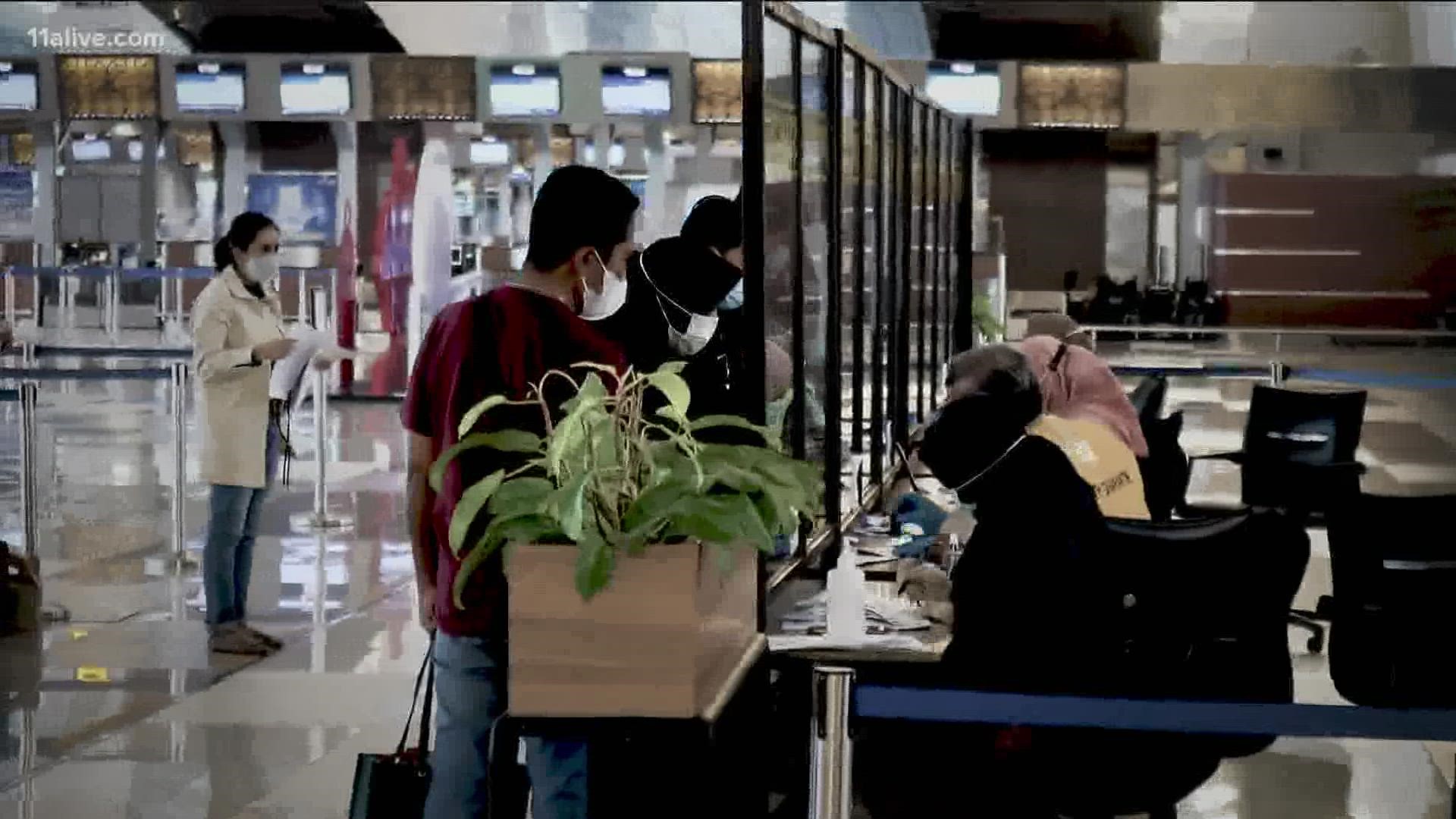ATLANTA — Whether you're at work, the grocery store, or even possibly at school, the use of plastic dividers is a common sight now.
Headlines circling social media question whether plastic dividers actually reduce the spread of COVID-19.
So, what's the truth? Our VERIFY team looks at the source of the headlines and consults an expert.
THE QUESTION
Can plastic dividers reduce the spread of COVID-19?
THE ANSWER
This claim is true partially. Plastic dividers can reduce the spread of COVID-19 but are limited in their effectiveness against small droplets of the virus.


WHAT WE KNOW
According to a study by British Health Researchers, plastic dividers may have some benefits to protect from large droplets of COVID-19, but they also report "screens are unlikely to reduce exposure to the virus in smaller aerosols as they can easily pass around a screen with the airflow."
"They may be giving people a false sense of security," 11Alive medical expert Dr. Sujatha Reddy said.
She agrees with the recent study, which suggests plastic dividers offer limited protection.
“We know that a lot of coronaviruses is transmitted through very small, aerosolized drops which you can almost not even see. So, those are able to get around barriers. And if someone has coronavirus and if they are in a barrier space or behind a screen, you may creating a dense volume they may be more likely to get out," Dr. Reddy explained.
The Georgia doctor says it's better to trust what works.
“Vaccinations, masks, and that social physical distancing,” Dr. Reddy said.
So we can VERIFY, plastic dividers can reduce the spread of COVID-19 but are limited in effectiveness against small droplets of the virus.
Our VERIFY team is here to fact-check claims being shared in the community and online. Fill out the form below with something you'd like us to Verify.

